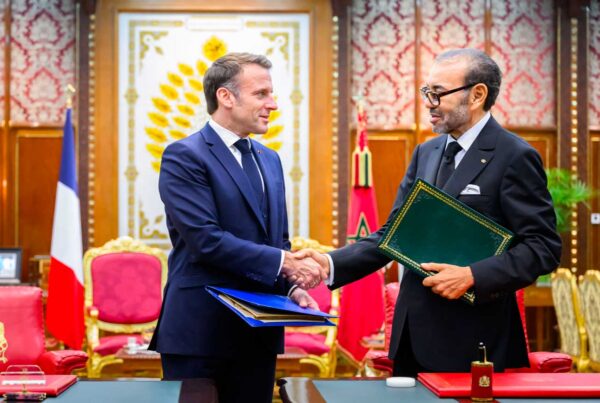“One thing is certain and will never change, and that is Israel’s commitment to democracy,” stated Israel’s Prime Minister Benjamin Netanyahu during a recent meeting with the United States President Joe Biden. The two leaders met in New York on September 20th to discuss a multitude of foreign policy issues, particularly the possibility of normalizing the relationship between Israel and Saudi Arabia, a deal which Biden and the United States are helping to construct, as well as Netanyahu’s erosion of Israeli democracy. This meeting between Netanyahu and Biden was their first meeting since Netanyahu became the head of the new conservative coalition.
As a backdrop to this discussion is a fraught Israeli political environment. Netanyahu’s coalition seems to rest on a shaky foundation, facing the “most sustained protest movements Israel has ever seen.”With this complex domestic situation in the background, Netanyahu also faces the challenge of putting together a peace and security deal that has the potential to transform relationships in the Middle East.
The Potential Deal

This deal would develop a new relationship between Netanyhu and the Saudi Crown Prince Muhammad bin Salman, marking a step towards rapprochement between Israel and its Arab neighbors. Israel began approaching other Arab nations through the 2020 Abraham Accords. In this agreement, Israel normalized relations with the United Arab Emirates and Bahrain, but not Saudi Arabia.
The establishment of the Jewish state at the expense of the Palestinian people led to frosty relationships between many Arab states and Israel. The first diplomatic recognition of Israel by Arab states was signed by Egypt in 1979, followed by Jordan in 1994. Currently, five Arab states have diplomatic ties with Israel: Egypt, Jordan, United Arab Emirates, Bahrain, and Morocco.
Improved diplomatic relations between Israel and Saudi Arabia would be a groundbreaking achievement. Saudi Arabia has historically ostracized Israel, and any form of relationship between the two states would have been impossible under the rule of the prince’s father, King Salman due to their background and religious differences. Adding diplomatic relationships with Saudi Arabia would mark a step towards warming Israeli-Arab relations, building on the steps taken in the Abraham Accords.
The deal would also involve an alliance with the United States, with whom Saudi Arabia hopes to develop “a more formal defense pact” with the potential to develop a civilian nuclear energy programme run by Americans in Saudi Arabia. In light of Iran’s intensification of its nuclear program, Saudi Arabia aims to prevent Tehran from gaining an outsized influence in the region.
Domestic Obstacles
The realization of this deal, however, is threatened by the domestic unrest facing Israel. This unrest comes from two fronts: firstly as a result of Netanyahu’s judicial reforms and secondly as a result of increased hostility with Palestine.
In July, Netayahu’s government passed a law which sought to limit the power of the judiciary. Although on the surface this may seem unrelated to the state’s foreign policy concerns, the ensuing mass protests that erupted in Israel and abroad have shaken the very foundation of Netanyahu’s global reputation.
In fact, when Netanyahu met with Biden and spoke at the United Nations General Assembly, he was not greeted by cheers of support, but rather by the voices of demonstrators concerned about the future of democracy in Israel. Netanyahu’s statement about Israel’s commitment to democracy seems to be little more than an empty promise, since his coalition government has continued to invest power into the legislature at the expense of balanced powers throughout the branches of government.
Biden also made a conscious decision to hold his September 20th meeting in New York rather than at the White House. This has been taken as a subtle sign of Biden’s discontent with the political direction Netanyahu’s coalition has pursued thus far. Among United States citizens as a whole, opinions towards Israel have been shifting. Historically, American citizens have held Israel in high regard. A shift, however, has been observed among younger Americans. The Pew Research center reported that “younger U.S. adults tend to express cooler views towards Israeli people and warmer views toward the Palestinians.”
Netanyahu’s relationship with Palestine poses perhaps one of the largest challenges to the potential deal with Saudi Arabia. Bin Salman mentioned on Fox News that he hopes a deal will “ease the life of the Palestinians.” However, Netanyahu’s coalition has shown repeatedly that it will not make concessions to Palestinians. In fact, in an agreement with the extreme right Zionist Party, the text stated that Jewish people have a right to the land of Israel and that the government will adopt policies to apply sovereignty over the land. The Israeli Finance Minister and head of the Zionist Party, Bezalel Smotrich, summarized his perspective on the matter; “we will not make any concessions to the Palestinians.” This suggests that the conservative coalition in power is determined to gain sovereignty over land that they consider to be the property of Israel, disregarding the perspective of Palestinians.
Netanyahu thus faces pressures on every side—from Israeli citizens who feel betrayed by his coalition’s attempts to change the structure of political institutions, to Palestinians angered by continued encroachments and threats by Israeli politicians. From Biden’s pressure at their September 20th meeting to work towards the Saudi deal, to Bin Salman’s wishes to improve the lives of Palestinians.
These competing interests form a jenga-like game that Netanyahu has to play. His tower is precariously made of layers of actors, institutions, and demands that he must maneuver carefully or risk the whole game collapsing. Not to mention the risk of an outside force knocking down the progress made up to this point. Only time will tell whether Netanyahu’s tower will remain standing or crumble to its foundation.
Other posts that may interest you:
- The Trouble with ‘Ecocide’
- Carbon dioxide removal – hit or miss?
- Local Victories for Turkish Opposition — A Sign of Hope?
- Are France and Japan a Mismatch Made in Heaven?
- A Reflection on Dark Tourism
Discover more from The Sundial Press
Subscribe to get the latest posts sent to your email.



